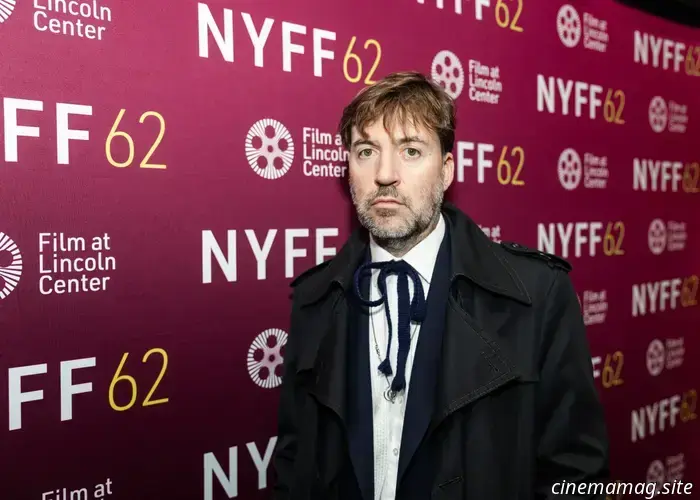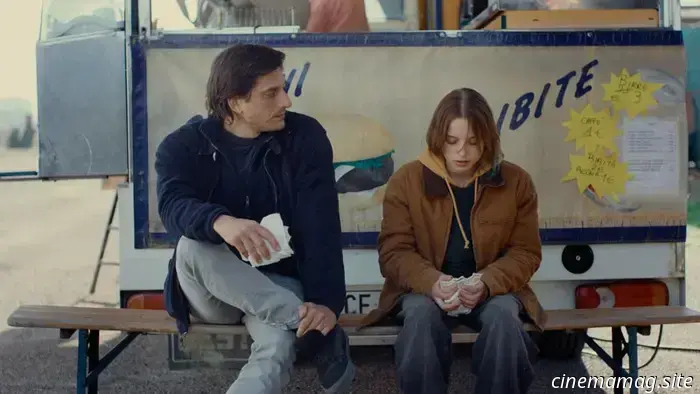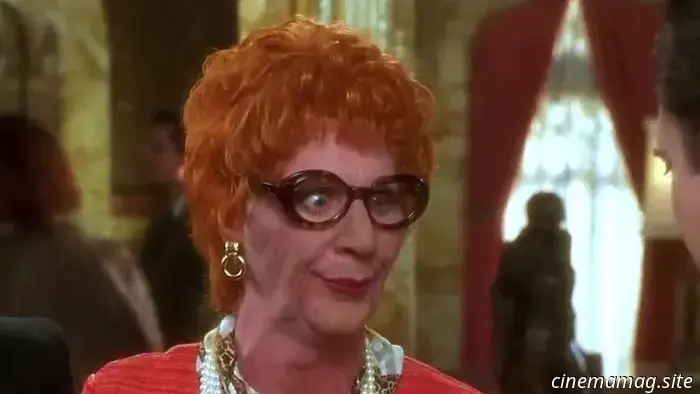.jpg)
The Top Movies of 2025 (Up to This Point)
As we near the midpoint of 2025, it's time to assess the best cinema released so far: we've compiled our favorites from the first half of this year, including some lesser-known gems. This list is focused exclusively on U.S. theatrical and digital releases from 2025.
Below you'll find our selections, arranged alphabetically, followed by a list of honorable mentions.
**Afternoons of Solitude (Albert Serra)**
Albert Serra’s latest film, *Afternoons of Solitude*, feels more like a two-hour sports broadcast than what you'd expect from the creator of *Story of My Death*. Adhering to the structure, if not necessarily the essence, of observational and direct cinema favored at festivals, the film primarily consists of lengthy takes that capture Spanish bullfighting arenas, centering on Andrés Roca Rey, a Peruvian “exemplar” in the sport engaged in ritualistic brutality. In an age where we are acutely aware of the constructed nature of documentaries, Serra’s main triumph is achieving an objective perspective. Under the direction of DP Arthur Tort, the camera avoids leering, and the editing doesn’t revert to close-ups that compel us to disapprove, creating a connection that allows us to acknowledge the awfulness of the spectacle. It offers an anthropological view of a tradition that merits both our respect and critique, embodying both admiration and condemnation for something barbaric and ultimately absurd. Roca, portrayed in a power pose with eyes that mirror both strength and vulnerability—much like the bull—represents both a hero and a villain, but those labels feel inadequate here. Sculpturally framed within the cinematic space, he simply exists. – David K. (full review)
**April (Dea Kulumbegashvili)**
Similar to *Beginning*, *April* showcases a reality that has been filtered through a lens. The director draws inspiration from fictionalized accounts based on real experiences, particularly from her hometown at the base of the Caucasus mountains in Georgia. The sparse dialogue, extended takes, and encroaching violence that envelops the lead character—Ia Sukhitashvili playing the wife of a Jehovah’s Witness pastor—creates a suffocating atmosphere, while *April* allows for breath. The patient yet persistent camera of Arseni Khachaturan reveals a world that is both familiar and unsettling, split between tempestuous storms and tranquil sunsets, alongside a decaying patriarchal culture that stifles female autonomy. Nina (Sukhitashvili), an OBGYN, is compelled to report a newborn's death due to a previously unregistered pregnancy, as her local community demands an investigation, driven by lingering gossip that Nina performs illegal abortions—something the patriarchal system cannot tolerate. – Savina P. (full review)
**Black Bag (Steven Soderbergh)**
Imagine a James Bond or *Mission: Impossible* film stripped of its action sequences—save for a lone explosion or gunfire—yet infused with a script echoing John le Carré’s style, and you might get *Black Bag* by Steven Soderbergh. A meticulously crafted spy thriller, the film is primarily set around dinner tables and office spaces, serving as backdrops for rapid, sharp-witted exchanges penned by David Koepp, who returns to the genre after Ethan Hunt's initial escapades. The narrative centers on three couples entangled in British intelligence, raising the question: can one maintain a healthy relationship when professional and personal lives are irrevocably intertwined, especially when one's occupation revolves around deception? – Jordan R. (full review)
**Broken Rage (Takeshi Kitano)**
Divided into two acts, the film begins as a crime thriller before switching tones and re-evaluating the first segment scene-by-scene with a fresh perspective. Kitano stars as a contract killer. In the first act, he is infallible, while in the second, he is clumsy—known as “Mouse,” a hitman whose routine is disrupted when the police recruit him to infiltrate a drug cartel. Though the two parts markedly differ in tone, humor is woven throughout. Even in the ostensibly serious first act, Kitano’s script follows a childlike rationale: it only takes a few staged punches in a brawl with another mole for Mouse to earn the trust of the mobsters he’s tasked to surveil. His lonely assassin serves as a comedic iteration of the formidable killers he has portrayed in prior works (consider Otomo from his *Outrage* series). Yet his willingness to satirize his onscreen identities is a departure I haven’t witnessed since 2005’s *Takeshis’*, which, although comedic, spiraled into self-indulgent flights of fancy. No such indulgence exists in *Broken Rage*. This film is not merely a wildly entertaining experience––it’s one that evoked uncontrollable laughter among audiences at the press screening––but also
.jpg)
.jpg)
.jpg)
.jpg)
.jpeg)
.jpeg)
.jpg)
.jpg)
.jpg)
.jpg)
.jpg)
.jpg)
.jpg)
.jpg)
.jpeg)
.jpg)
.jpg)
.jpg)
.jpg)
.jpg)
Other articles
 “You Cannot Impose Your Desire”: Albert Serra Discusses Afternoons of Solitude, Bullfighting, and Kristen Stewart
Please note: This interview was initially featured in our coverage of the 2024 festival. Afternoons of Solitude will be released in theaters on June 27. In Afternoons of Solitude, Catalan director Albert Serra makes his return to Spain with his inaugural documentary, which offers a graphic depiction of the famed bullfighter Andrés Roca Rey and the procession of bulls he kills. Shot in
“You Cannot Impose Your Desire”: Albert Serra Discusses Afternoons of Solitude, Bullfighting, and Kristen Stewart
Please note: This interview was initially featured in our coverage of the 2024 festival. Afternoons of Solitude will be released in theaters on June 27. In Afternoons of Solitude, Catalan director Albert Serra makes his return to Spain with his inaugural documentary, which offers a graphic depiction of the famed bullfighter Andrés Roca Rey and the procession of bulls he kills. Shot in
 Peacock's The Five-Star Weekend expands its supporting cast.
As the main cast of Peacock's anticipated drama The Five-Star Weekend has been finalized, focus is now shifting to the supporting cast. The newest additions to the series include Harlow Jane (Dig), David Denman (Rebel Ridge), Josh Hamilton (The Walking Dead), and Rob Huebel (The Sex Lives of College Girls). The Five-Star […]
Peacock's The Five-Star Weekend expands its supporting cast.
As the main cast of Peacock's anticipated drama The Five-Star Weekend has been finalized, focus is now shifting to the supporting cast. The newest additions to the series include Harlow Jane (Dig), David Denman (Rebel Ridge), Josh Hamilton (The Walking Dead), and Rob Huebel (The Sex Lives of College Girls). The Five-Star […]
 Everything Matches with Blue in the latest clip and character posters for the Smurfs.
Paramount Pictures has brightened your day with a splash of blue by unveiling a collection of character posters along with a music video clip for the upcoming cinematic release of the Smurfs. The film features an impressive voice cast, including Rihanna, James Corden, Nick Offerman, Daniel Levy, Natasha Lyonne, Hannah Waddingham, and John Goodman. All of […]
Everything Matches with Blue in the latest clip and character posters for the Smurfs.
Paramount Pictures has brightened your day with a splash of blue by unveiling a collection of character posters along with a music video clip for the upcoming cinematic release of the Smurfs. The film features an impressive voice cast, including Rihanna, James Corden, Nick Offerman, Daniel Levy, Natasha Lyonne, Hannah Waddingham, and John Goodman. All of […]
 Raindance Film Festival 2025 Review – Paternal Leave
Paternal Leave, 2025. Directed by Alissa Jung. Featuring Juli Grabenhenrich, Luca Marinelli, and Arturo Gabbriellini. SYNOPSIS: A teenage girl journeys to the northern coast of Italy to find her biological father. Upon their meeting, they confront intricate emotions and find it challenging to establish a bond while remaining authentic to themselves. Alissa Jung’s first film [...]
Raindance Film Festival 2025 Review – Paternal Leave
Paternal Leave, 2025. Directed by Alissa Jung. Featuring Juli Grabenhenrich, Luca Marinelli, and Arturo Gabbriellini. SYNOPSIS: A teenage girl journeys to the northern coast of Italy to find her biological father. Upon their meeting, they confront intricate emotions and find it challenging to establish a bond while remaining authentic to themselves. Alissa Jung’s first film [...]
 Sepideh Moafi has been added as a series regular in season 2 of The Pitt.
HBO Max's popular medical drama The Pitt has welcomed a new member to its ensemble cast: Sepideh Moafi (The L Word: Generation Q). Moafi will play a regular role as an attending physician in emergency medicine. The Pitt stands out as a medical drama because its inaugural season centered around a single 15-hour shift in the ER [...]
Sepideh Moafi has been added as a series regular in season 2 of The Pitt.
HBO Max's popular medical drama The Pitt has welcomed a new member to its ensemble cast: Sepideh Moafi (The L Word: Generation Q). Moafi will play a regular role as an attending physician in emergency medicine. The Pitt stands out as a medical drama because its inaugural season centered around a single 15-hour shift in the ER [...]
 15 Ranked Characters from Master of Disguise
Here are 15 characters portrayed by Dana Carvey in his 2002 comedy Master of Disguise, ranked from least to most impressive.
15 Ranked Characters from Master of Disguise
Here are 15 characters portrayed by Dana Carvey in his 2002 comedy Master of Disguise, ranked from least to most impressive.
The Top Movies of 2025 (Up to This Point)
As we near the midpoint of 2025, it's time to assess the best films of the year so far: we've compiled our top picks from the first half of this year, including some that might have gone unnoticed. Please be aware that this list is exclusively based on theatrical and digital releases in the U.S. from 2025. Check
